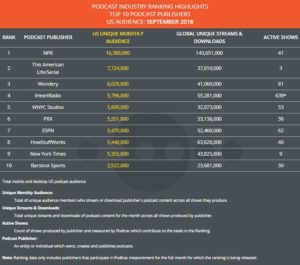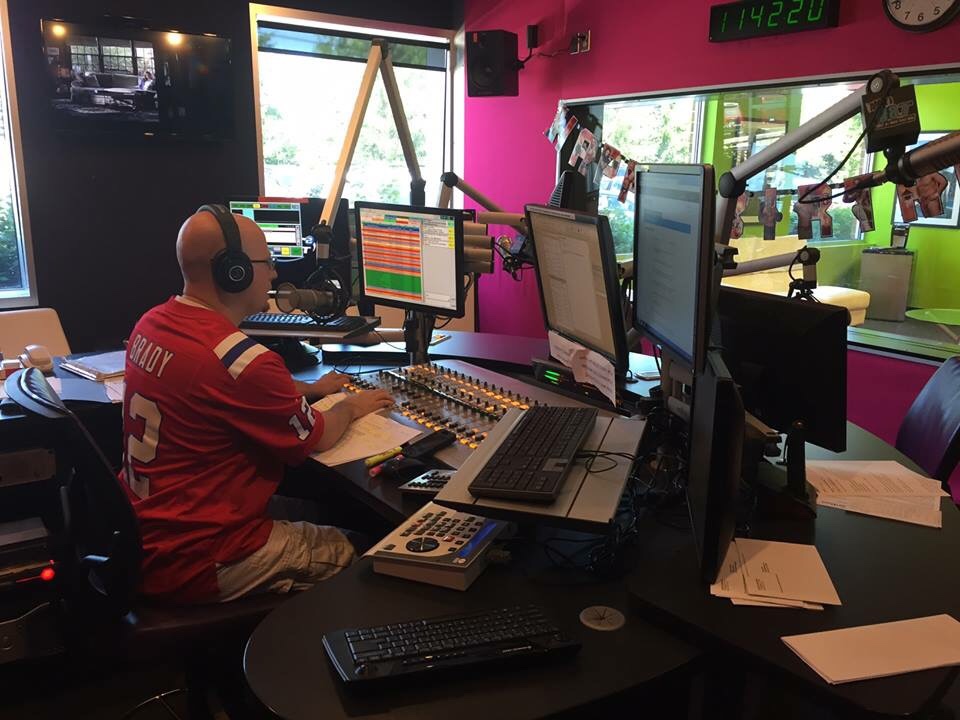Large corporate radio is buying in to podcasting. Some would argue it’s the podcaster equivalent of a band “selling out for a record deal.” Others would say it was inevitable. Here’s how we got here. It all started with this device:

History:
In large markets, the PPM device (above) replaced the old diary based ratings system. Previously, ratings relied on respondents’ memory (and human error). Now, the Arbitron (later Nielsen) ratings people could track actual listening, minute by minute.
- The PPMs showed massive tune-out when DJ’s spoke too long or were not compelling.
- Radio companies erroneously thought this data meant listeners hated all DJ’s.
- The edict came down for on-air personalities to “shut up and play the music,” outside morning drive, news, talk, and sports.
- This turned radio stations into jukeboxes, which was fine until services like Pandora and Spotify took hold.
- Listeners started listening to their own curated playlists, rather than one put together by some radio programmer.
- Radio lost the very thing that differentiated it from other music sources: its personality.
Podcasts began to fill that personality and creativity void, while radio remained dominated by nationally syndicated and prerecorded voices. Podcasters have a passion for specific content, and it shows. When I attended the Podcast Movement convention this summer, I was struck by the presence of all the major radio companies. iHeart was there; so were CBS/Entercom, Beasley, and others. It was obvious why they were there. They saw the personality and growth of podcasting, and they wanted in.
Radio Jumps on the Podcasting Train:
Dan Granger, a Detroiter and iHeartRadio expat like me, wrote an outstanding piece for The Drum, discussing the re-invention of radio. This new dawn comes on the heels of seismic change in the industry. Entercom purchased CBS Radio, making them the second-largest owner in the nation. The biggest, iHeartMedia (formerly ClearChannel), recently filed for bankruptcy protection under $20+ billion in debt. Here’s the part of Dan’s piece that jumped off my screen.
The radio giants did not go quietly into the night. Quite the contrary. In the last two weeks, I’ve spoken directly with executives at Entercom, Westwood One, and iHeart. They are now in an arms race for on-demand audio content, and do not care if it comes from existing radio talent, launching new podcast talent, or acquiring existing Podcast talent that has already achieved leadership on the charts. Westwood One has emerged from bankruptcy. Entercom is newly empowered as a major player with an appetite to scale into the future. Then there’s iHeart. The industry leader is chomping at the bit, soon to emerge from their Chapter 11 bankruptcy and bucking the gates, poised to go on a content tear. Meanwhile, Panoply shuts down its programming arm, in favor of focusing on their tech platform, while BuzzFeed and Audible both close down their podcast creation efforts.
Granger also shared this Podtrac chart of Top 10 publishers (updated since his piece). He also reminds us that iHeart (still in bankruptcy) just bought HowStuffWorks. 
There should be no debate about terrestrial radio’s interest in podcasting. They hope to find great content and give it a bigger microphone (so to speak). The biggest piece of evidence is iHeart’s announcement of their iHeartRadio Podcasting Awards, which I’ll tackle in my next post.

